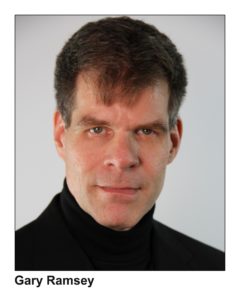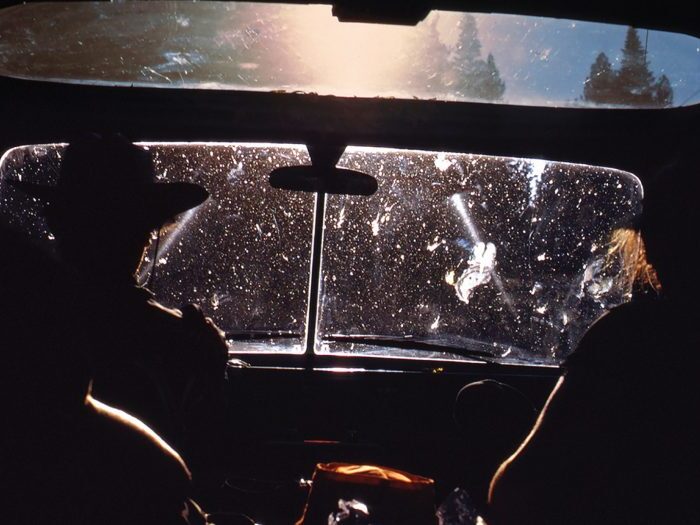
Baritone Gary Ramsey Speaks about Menotti’s ‘Amahl and the Night Visitors’ and Luring Young Audiences to Opera (Exclusive Interview)
By Francisco SalazarOn Dec. 8, Opera Breve will open its 2016-17 season with “Amahl and the Night Visitors.” The rarely-staged Menotti opera is a special work as it was the first opera made in the U.S for TV.
OperaWire had the opportunity to interview Gary Ramsey, who is playing the role of King Melchior. The baritone was a late bloomer, coming into the world of opera in his middle age after working with noted teacher Cornelius Reed. Despite succeeding thereafter, Ramsey was forced with another major challenge in his life – cancer. The battle nearly cost him his life, forcing him to put his career on hold. But upon finally winning that battle, he came back stronger than ever, taking on roles in Verdi’s “Rigoletto” and Mozart’s “Cosi Fan Tutte” at the Loft Opera for which he received rave reviews. After such an acclaimed run of operas Ramsey will conclude his season with the Menotti work.
During the interview, Ramsey spoke about the process and the incredible experiences of getting to know this rare opera.
OperaWire: How did you get involved with Opera Breve?
Gary Ramsey: Through [Opera Breve artistic director] Lenora Eve. Lenora and I both studied with a very famous teacher years ago and she is actually the one that was one of my first coaches for opera. What I love is that she is always doing more innovative and creative things.
OW: Tell me a little about Menotti’s “Amahl and the Night Visitors? It’s not very well known and audiences have not been very exposed to it.
GR: You know it’s weird. It’s one of those pieces that some people know really well, but at the same time, others do not know at all. It’s a Christmas story because it’s about the three wise men who go to meet baby Jesus. And they get stopped along the way because they are very cold and want to rest at a very poor house. So that is really the basis of the story. I think it’s really appropriate doing it at this time of the year.
OW: What is it like to work with the other cast members?
GR: This is my third or fourth with Opera Breve so I’ve worked with some of them before. It’s really wonderful to explore and see people from different ways and different vocal backgrounds. To see their process and then blending is so fascinating.
OW: This opera will be performed with children in the lead role. Professional opera singers do not usually get that kind of experience. What was it like?
GR: As opposed to an adult chorus, there will be a high school chorus, which is really great because they are kids who are in this public high school. For a lot of them, it’s their first professional job! It’s so fabulous working with kids especially at this time of the season and especially in this opera. We have kids of all ages from 13 to 17. As for the kids singing Amahl, they sing from their heart and they are not jaded like opera singers can be. So when you see them all up on stage doing it, it’s just magic.
OW: Prior to being cast did you know about the opera?
GR: No. I heard about it the first time Lenora called me up. I was doing another production of “Cosi Fan Tutte” and she said that she would love me to do it. I didn’t know when the opera was written, that it was by an Italian in English. I always thought that was weird. I knew nothing about it, though.
OW: So what did you do to prepare for it?
GR: Well the research and the background on the magi. I am the one with the gold. So I am the one who has come from a different place. We meet and go on our journey to meet the Christ child. But they never mention the Christ child. They just say the child, “The Special Child.” So I looked up all the mythology and we made decisions. Lenora helped us and guided us in making decisions about the kings. Each king has a different category that Menotti created for each one. One is kind of the buffoon. I’m kind of the one who is more gentle and the other one is a caretaker and watches over everyone. Then we took what we know about the story and fit it into one.
OW: So does Menotti’s music characterize each one of the kings in a different way?
GR: Yes and that is always the deal. What did the opera composer do and how can we fit our take on it and put it together? Because in opera it’s never written exactly how the composer wants to.
OW: Did you see the original broadcast from 1951?
GR: I did. I love it and it got me more familiar with the work. From my perspective, it helped to inform me with the new vision we are doing. To see what other people envision and to see what they do helped me figure out how to add to that. So I don’t get attached to anyone’s interpretation. And opera companies are becoming much more innovative and much more creative and they are not following the regimented old style.
OW: So what can audiences expect from this production?
GR: Well it’s modern day. Everyone is dressed very modern. We have taken the idea that the kings are three men traveling in a car and are dressed up in evening wear getting ready to visit this place where this child is being born. And they are very cold and we have the idea that the car has to be serviced so we have to stay somewhere. The brilliant thing about this production is since there are high school kids, these are people who have never been exposed to opera and so the house is going to be filled with a whole bunch of people who would never have attended an opera. This is going to connect two different worlds.
OW: How did you get involved in opera? What inspired you to want to do it?
GR: My introduction was a little different from others. As old as I am I have not been singing opera for a very long time. I met a very famous teacher Cornelius L. Reed. He also taught Lenora and they had a very long relationship. During that time I started teaching Alexander technique. Someone recommended him to me because I was a voice teacher, spoken not singing. And we met and he wanted me to take singing classes because he thought I would understand the Alexander technique better. I did not like to sing especially not opera and he said just try it and you’ll figure it out. And then he said “you have a real gift. You are more designed to sing opera and I think you should try it.” And so I did my first opera and it was Lenora who coached me on it and it was in the same exact space as we will be performing Menotti’s work. It’s full circle.
OW: Why do you think Grassroots opera companies are so crucial to the art form? How do you think they will influence the industry?
GR: I think opera is very rigid and I think these companies are looking for ways to make it more intimate. I would love to see them do something like they did with Baz Luhrmann in “La Boheme” on Broadway and using much more innovative ways. Some of the music is so glorious and so beautiful and people just haven’t been exposed to it. Look at the Loft Opera. It’s a hipster company which attracts young people being courted by big companies. These big theaters are expensive and are not intimate. The smaller houses can bring the music to the audience. It does not happen very often at big companies.
OW: So what are some of your dreams for future seasons?
GR: “Rigoletto” was the big one and I did it already after recovering from cancer. When I was doing chemotherapy in Mexico, I took the role with me. I listened to it and worked on it. I wanted to do something to keep me busy. And then somebody called me and asked me to do an audition for Rigoletto. And so I did it and got it. Miraculous. That’s how it’s been ever since I got back on stage.
OW: When you were preparing for Rigoletto, who did you listen to and who is your favorite?
GR: Everything. I love Leonard Warren. I watched as many clips of him. And then I watched all types of productions of the opera. I just really wanted to absorb that character. I’m just one of those people who likes to research as much as possible.
OW: What are some future plans?
GR: Well this is my last opera for the year and I’ll be seeing what comes next. But I’m so glad that “Amahl” is the last this year. And we shall see what the future holds.


